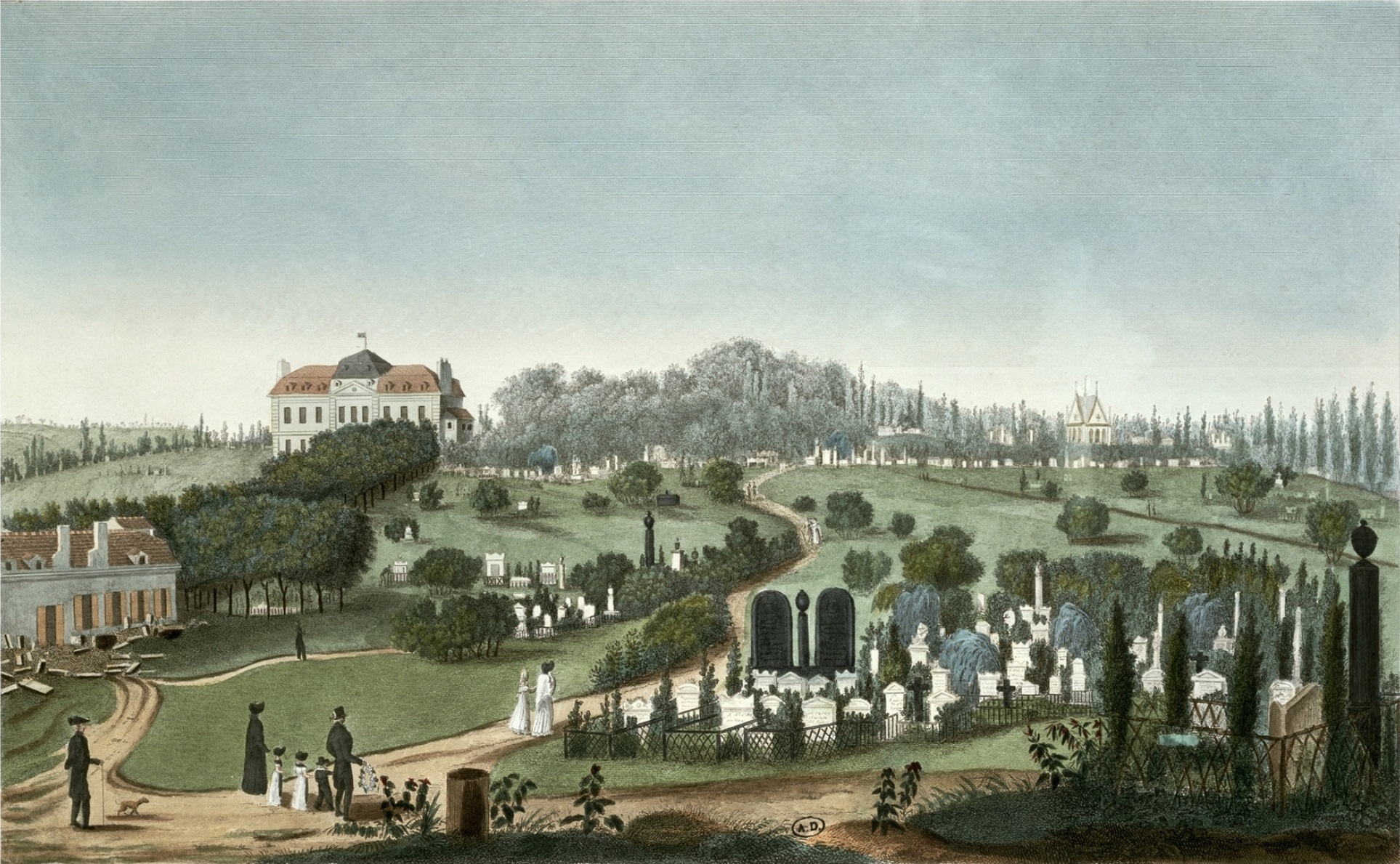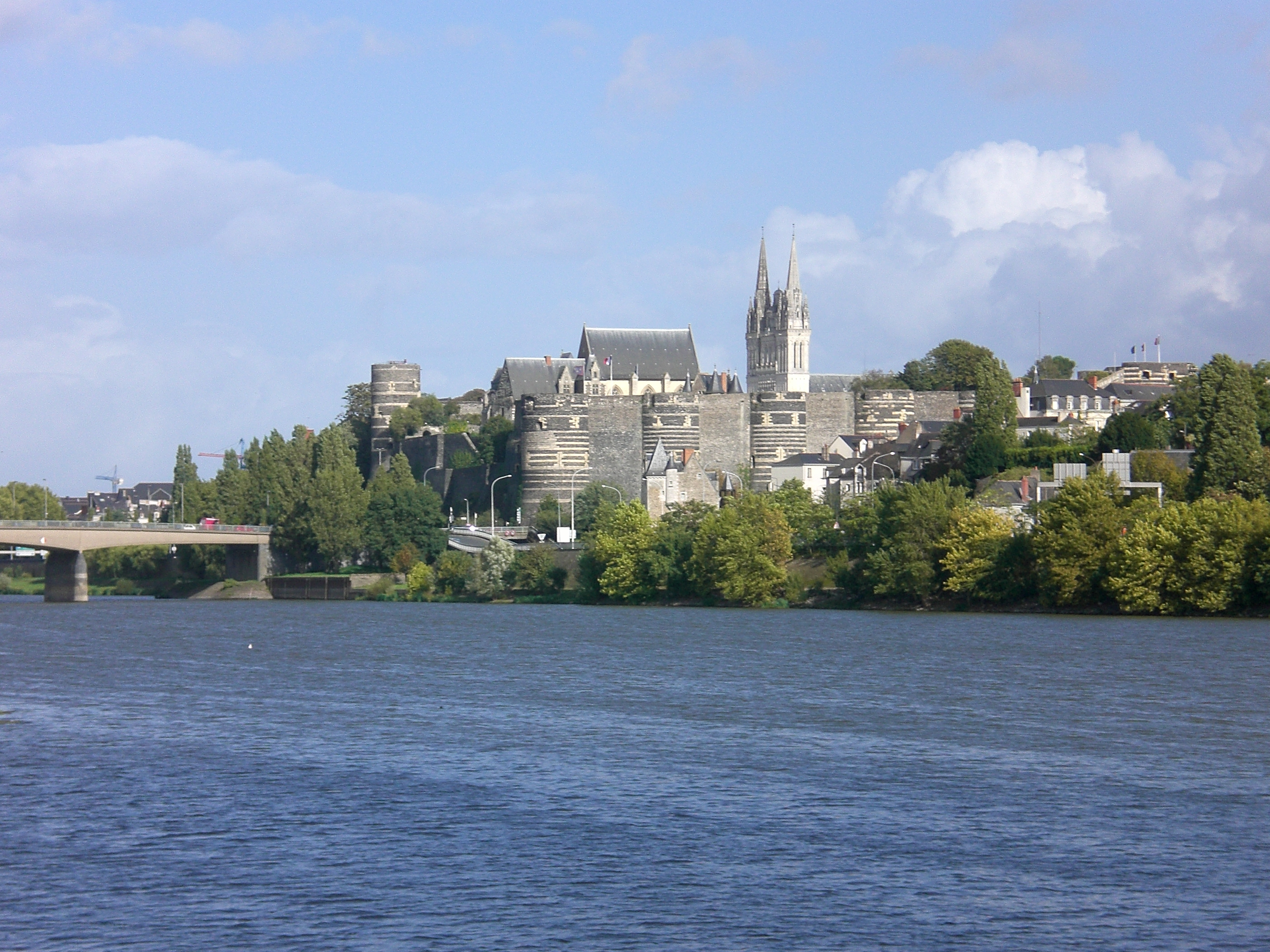|
Ledru-Rollin
Alexandre Auguste Ledru-Rollin (; 2 February 1807 – 31 December 1874) was a French lawyer, politician and journalist who emerged as one of the leaders of the French Revolution of 1848. He served as Minister of the Interior and on the Executive Commission in 1848, in addition to several legislative posts between 1839 and 1874. Youth The grandson of Nicolas Philippe Ledru, the celebrated quack doctor known as "Comus" under Louis XV and Louis XVI, Ledru-Rollin was born in Paris. He had just begun to practice at the Parisian bar before the Revolution of July 1830 and was retained for the Republican defence in most of the great political trials of the next ten years. In 1838, he bought for 330,000 francs Désiré Dalloz's place in the Court of Cassation. He was elected deputy for Le Mans in 1841 with little opposition; but the violence of his electoral speeches led to his being tried at Angers and sentenced to four months' imprisonment and a fine, against which he appealed succ ... [...More Info...] [...Related Items...] OR: [Wikipedia] [Google] [Baidu] |
French Executive Commission Of 1848
The Executive Commission of 1848 was a short-lived government during the French Second Republic, chaired by François Arago, that exercised executive power from 9 May 1848 to 24 June 1848. It succeeded the Provisional Government of 1848 and was in turn replaced by the Cabinet of General Cavaignac. The members of the Commission acted as collective head of state. The Commission lacked support in the National Assembly. It soon found itself at odds with the conservative majority and effectively unable to properly govern. The closure of the National Workshops, by leading to the June Days Uprising, sealed the doom of the Executive Commission. Judging the Commission unable to quell the uprising, the Assembly effectively dissolved it on 24 June by a vote of no confidence and gave full powers to General Louis Eugène Cavaignac. Formation In May 1848 the National Assembly decided to establish the Executive Commission as a form of collective presidency, similar to that of Year III in the ... [...More Info...] [...Related Items...] OR: [Wikipedia] [Google] [Baidu] |
The Mountain (1849)
The Mountain (), with its members collectively called Democratic Socialists (), was a political group of the French Second Republic. The group drew its name from The Mountain, a group active in the early period of the French Revolution. Standing on a republican platform, its main opposition was the conservative Party of Order. The Mountain achieved 25% of the vote, compared to 53% for the Party of Order. It was led by Alexandre Auguste Ledru-Rollin, one of the members of the Second Republic's early provisional government. History After 1848, the Odilon Barrot's Party of Order-backed government sought to repress protests against alcohol excises and the 45 centime land tax as well as demand for cheap credit and other grievances. The Democratic Socialists clandestinely organized this dissent in the face of press censorship, restrictions on political meetings and harassment. The Mountain's broader strategy was to prepare for the 1852 legislative and presidential elections ... [...More Info...] [...Related Items...] OR: [Wikipedia] [Google] [Baidu] |
Comus (Nicolas Philippe Ledru)
Nicolas-Philippe Ledru (1731, Paris – October 6, 1807, Fontenay-aux-Roses), known as Comus, was a noted European physicist, prestidigitator and illusionist of the late 18th century. He had two sons, Jacques Philippe Ledru (1754–1832), a member of the French National Academy of Medicine and a mayor of Fontenay-aux-Roses, and Jacques Auguste Ledru, an inspector of pawn-shops. The latter was the father of Alexandre Auguste Ledru-Rollin, a lawyer and a French politician. Nicolas-Philippe Ledru styled himself Comus after the Greek god of mirth and revelry, and entertained royalty, aristocrats, and the general public with his scientific experiments. He traveled extensively throughout Europe demonstrating his tricks and acquired a huge reputation. He had an office in Paris where he performed various experiments for the public on sound, light, electricity, magnetism, incompressibility of water and so on. At his office he also introduced tricks of illusion, such as a female robot getti ... [...More Info...] [...Related Items...] OR: [Wikipedia] [Google] [Baidu] |
French Revolution Of 1848
The French Revolution of 1848 (), also known as the February Revolution (), was a period of civil unrest in France, in February 1848, that led to the collapse of the July Monarchy and the foundation of the French Second Republic. It sparked the wave of revolutions of 1848. The revolution took place in Paris, and was preceded by the French government's crackdown on the campagne des banquets. Starting on 22 February as a large-scale protest against the government of François Guizot, it later developed into a violent uprising against the monarchy. After intense urban fighting, large crowds managed to take control of the capital, leading to the abdication of King Louis Philippe on 24 February and the subsequent proclamation of the Second Republic. Background Under the Charter of 1814, Louis XVIII ruled France as the head of a constitutional monarchy. Upon Louis XVIII's death, his brother, the Count of Artois, ascended to the throne in 1824, as Charles X. Supported by the u ... [...More Info...] [...Related Items...] OR: [Wikipedia] [Google] [Baidu] |
National Assembly (1871)
The National Assembly (French language, French: ''Assemblée nationale'') was a French Unicameralism, unicameral Legislature, legislative body 1871 French legislative election, elected on 8 February 1871 in the wake of the Armistice of Versailles signed on 26 January 1871 at the end of the Franco-Prussian War. It sat in Bordeaux until 20 March 1871, when it moved to the Palace of Versailles near Paris. The cabinets which issued from it governed France from 19 February 1871 to 31 December 1875. See also * Commune of Paris * French constitutional laws of 1875 Sources * Bernard Noël, ''Dictionnaire de la Commune'', Flammarion, collection Champs, 1978 * Jean-Pierre Azéma et Michel Winock, ''Naissance et mort. La Troisième République'', Collection Pluriel, 1978 * Antoine Olivesi et André Nouschi, ''La France de 1848 à 1914'', Nathan Université, collection fac Histoire, 1997. Aftermath of the Franco-Prussian War 1870s in France 1870s in politics ... [...More Info...] [...Related Items...] OR: [Wikipedia] [Google] [Baidu] |
Père Lachaise Cemetery
Père Lachaise Cemetery (, , formerly , ) is the largest cemetery in Paris, France, at . With more than 3.5 million visitors annually, it is the most visited necropolis in the world. Buried at Père Lachaise are many famous figures in the arts, including Miguel Ángel Asturias, Honoré de Balzac, Sarah Bernhardt, Georges Bizet, Frédéric Chopin, Colette, George Enescu, Max Ernst, Olivia de Havilland, Marcel Marceau, Georges Méliès, Amedeo Modigliani, Molière, Édith Piaf, Camille Pissarro, Marcel Proust, Gertrude Stein, Oscar Wilde, Richard Wright (author), Richard Wright, Sadegh Hedayat, Jim Morrison, and Michel Petrucciani. Many famous philosophers, scientists, and historical figures are buried there as well, including Peter Abelard, Pierre Bourdieu, Jean-François Champollion, Auguste Comte, Georges Cuvier, Joseph Fourier, Manuel Godoy, Georges-Eugène Haussmann, Jean-François Lyotard, Nestor Makhno, Maurice Merleau-Ponty, Jean Moulin, Henri de Saint-Simon, Jean-Bap ... [...More Info...] [...Related Items...] OR: [Wikipedia] [Google] [Baidu] |
Angers
Angers (, , ;) is a city in western France, about southwest of Paris. It is the Prefectures of France, prefecture of the Maine-et-Loire department and was the capital of the province of Duchy of Anjou, Anjou until the French Revolution. The inhabitants of both the city and the province are called ''Angevins'' or, more rarely, ''Angeriens''. Angers proper covers and has a population of 154,508 inhabitants, while around 432,900 live in its metropolitan area (''aire d'attraction''). The Communauté urbaine Angers Loire Métropole, Angers Loire Métropole is made up of 29 communes covering with 299,500 inhabitants (2018).Comparateur de territoire INSEE Not including the broader metropolitan area, Angers is the third most populous Communes of France, commune in northwes ... [...More Info...] [...Related Items...] OR: [Wikipedia] [Google] [Baidu] |
Le Mans
Le Mans (; ) is a Communes of France, city in Northwestern France on the Sarthe (river), Sarthe River where it meets the Huisne. Traditionally the capital of the Provinces of France, province of Maine (province), Maine, it is now the capital of the Sarthe Departments of France, department and the seat of the Roman Catholic diocese of Le Mans. Le Mans is a part of the Pays de la Loire Regions of France, region. Its inhabitants are called ''Manceaux'' (male) and ''Mancelles'' (female). Since 1923, the city has hosted the 24 Hours of Le Mans, the world's oldest active endurance sports car race. The event is among the most attended and Triple Crown of Motorsport, prestigious motor sports events in the world. History First mentioned by Claudius Ptolemy, the Roman Empire, Roman city ''Vindinium'' was the capital of the Aulerci, a sub tribe of the Aedui. Le Mans is also known as ''Civitas Cenomanorum'' (City of the Aulerci Cenomani, Cenomani), or ''Cenomanus''. Their city, seized by ... [...More Info...] [...Related Items...] OR: [Wikipedia] [Google] [Baidu] |
Désiré Dalloz
Désiré Dalloz (12 August 1795 – 12 January 1869) was a French jurist, politician and publisher. Life Born in Septmoncel, Jura (département), Jura, he pursued the profession of an advocate. He was admitted to the Bar association, bar of the Cour royale in 1817, and practiced law before the French high courts from 1823 to 1836. His oral arguments were reproduced in legal journals such as ''Le Moniteur Universel, Moniteur'' and ''Gazette des tribunaux''. Dalloz represented the département of Jura in Parliament from 1837 to 1848, supporting the House of Orléans. He died in Paris after having suffered from paralysis for twenty years. His principal contribution to French law is the advancement of the study of judicial decisions. Dalloz headed a journal dedicated to that purpose, the ''Jurisprudence du royaume. Recueil periodique et critique''. In 1832 he published the ''Répertoire de jurisprudence générale du royaume'', an index, summary and reference of all contemporary judi ... [...More Info...] [...Related Items...] OR: [Wikipedia] [Google] [Baidu] |
Revolution Of July 1830
The French Revolution of 1830, also known as the July Revolution (), Second French Revolution, or ("Three Glorious [Days]"), was a second French Revolution after French Revolution, the first of 1789–99. It led to the overthrow of King Charles X of France, Charles X, the French House of Bourbon, Bourbon monarch, and the ascent of his cousin Louis Philippe I, Louis Philippe, Duke of Orléans. The 1830 Revolution marked a shift from one constitutional monarchy, under the Bourbon Restoration in France, restored House of Bourbon, to another, the July Monarchy; the transition of power from the House of Bourbon to its cadet branch, the House of Orléans; and the replacement of the principle of hereditary right by that of popular sovereignty. Supporters of the Bourbons would be called Legitimists, and supporters of Louis Philippe were known as Orléanists. In addition, there continued to be Bonapartists supporting the return of Napoleon Bonaparte, Napoleon's heirs. After 18 preca ... [...More Info...] [...Related Items...] OR: [Wikipedia] [Google] [Baidu] |
Louis XVI Of France
Louis XVI (Louis-Auguste; ; 23 August 1754 – 21 January 1793) was the last king of France before the fall of the monarchy during the French Revolution. The son of Louis, Dauphin of France (1729–1765), Louis, Dauphin of France (son and heir-apparent of Louis XV, King Louis XV), and Maria Josepha of Saxony, Dauphine of France, Maria Josepha of Saxony, Louis became the new Dauphin of France, Dauphin when his father died in 1765. In 1770, he married Marie Antoinette. He became King of France and Navarre on his grandfather's death on 10 May 1774, and reigned until the proclamation of the abolition of the monarchy, abolition of the monarchy on 21 September 1792. From 1791 onwards, he used the style of king of the French. The first part of Louis XVI's reign was marked by attempts to reform the French government in accordance with Enlightened absolutism, Enlightenment ideas. These included efforts to increase Edict of Versailles, tolerance toward non-Catholics as well as abolishing ... [...More Info...] [...Related Items...] OR: [Wikipedia] [Google] [Baidu] |





